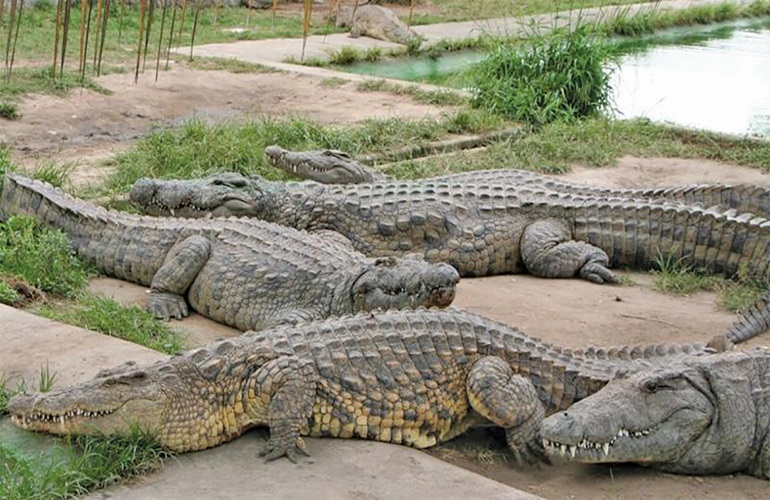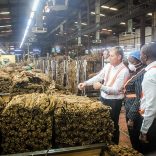Angola to import pre-germinated oil palm seeds, improved cashew seeds from Mozambique - government
Mozambique: Still this year: Nhangau will have a crocodile abattoir – Noticias

Picture: Noticias
The construction of a crocodile abattoir in Nhangau, on the outskirts of Beira, starts this year, and contacts with national authorities for its accreditation are underway.
Administrator of the Agri-livestock Association (AGRIPEC), Zita Guimarães, explained that the investment would export crocodile meat, and will have the capacity to slaughter 200 crocodiles per day.
Among other destinations, AGRIPEC plans to export crocodile meat to Asia, especially China, a process which currently only awaits the issuing of a license by the Provincial Veterinary Services.
In addition to the meat, six to seven thousand reptile skins are to be exported this year to Italy, South Korea and Portugal where, last year, more than 5,000 crocodile skins were placed.
Guimarães says AGRIPEC has the capacity to export between 30 and 50 tons of crocodile meat annually. It has more than 27,000 crocodiles and 5,328 eggs in about 30 pavilions in the Nhangau administrative post.
To increase capacity, the association has an annual goal of collecting 2,000 eggs from along the Zambezi River, especially the Chemba, Caia and Marromeu districts, where it encourages riverine communities to capture the animals and collect their eggs.
“Tame” crocodiles
Zita Guimarães took the opportunity to give assurances that crocodiles raised in Nhangau are no longer a danger to man, thanks to their experience of “coexistence” and expertise garnered in neighbouring Zimbabwe.
The AGRIPEC was responding to the capture, a few days ago, of a crocodile in the Manga area. She also said that all crocodiles in her tourist resort were protected, and securely confined within a fenced space.












Leave a Reply
Be the First to Comment!
You must be logged in to post a comment.
You must be logged in to post a comment.